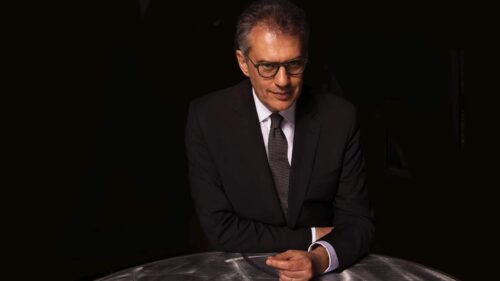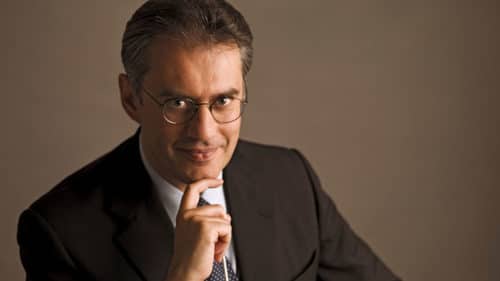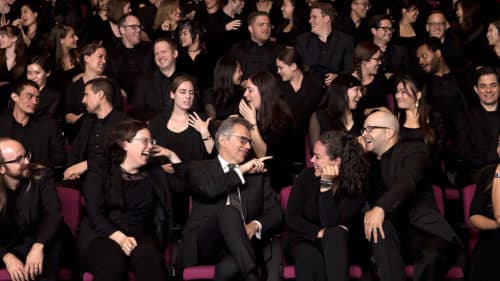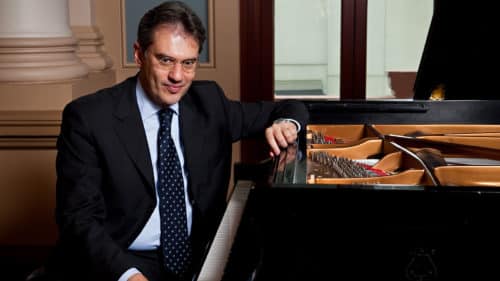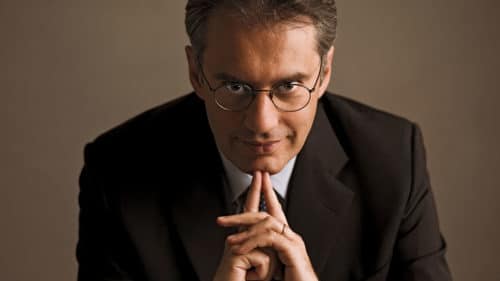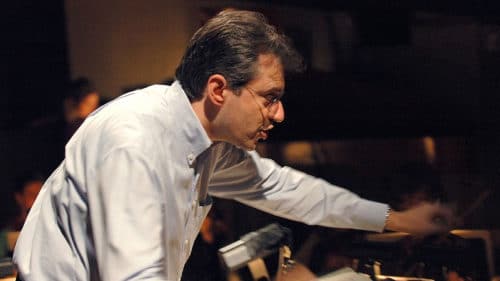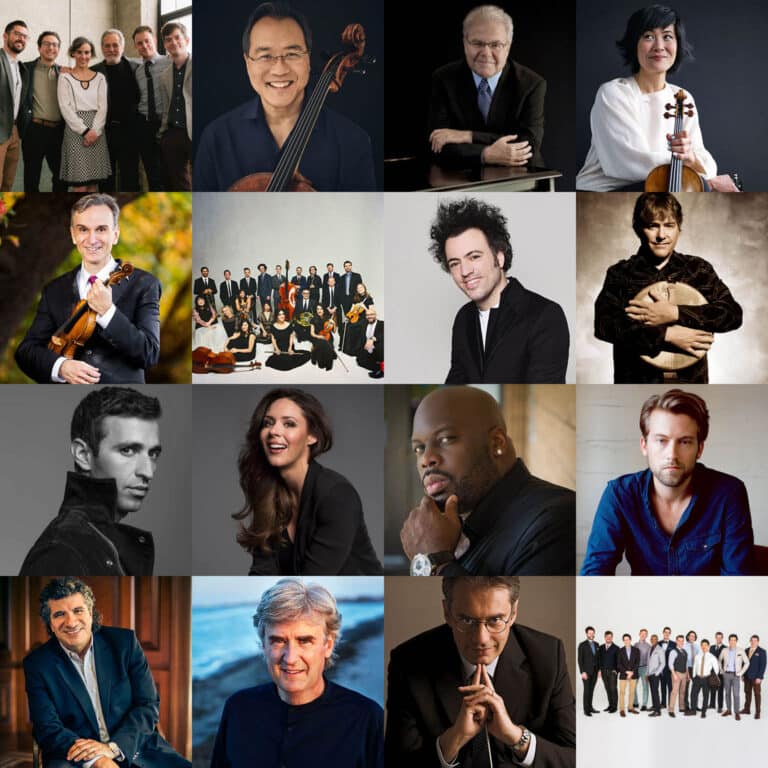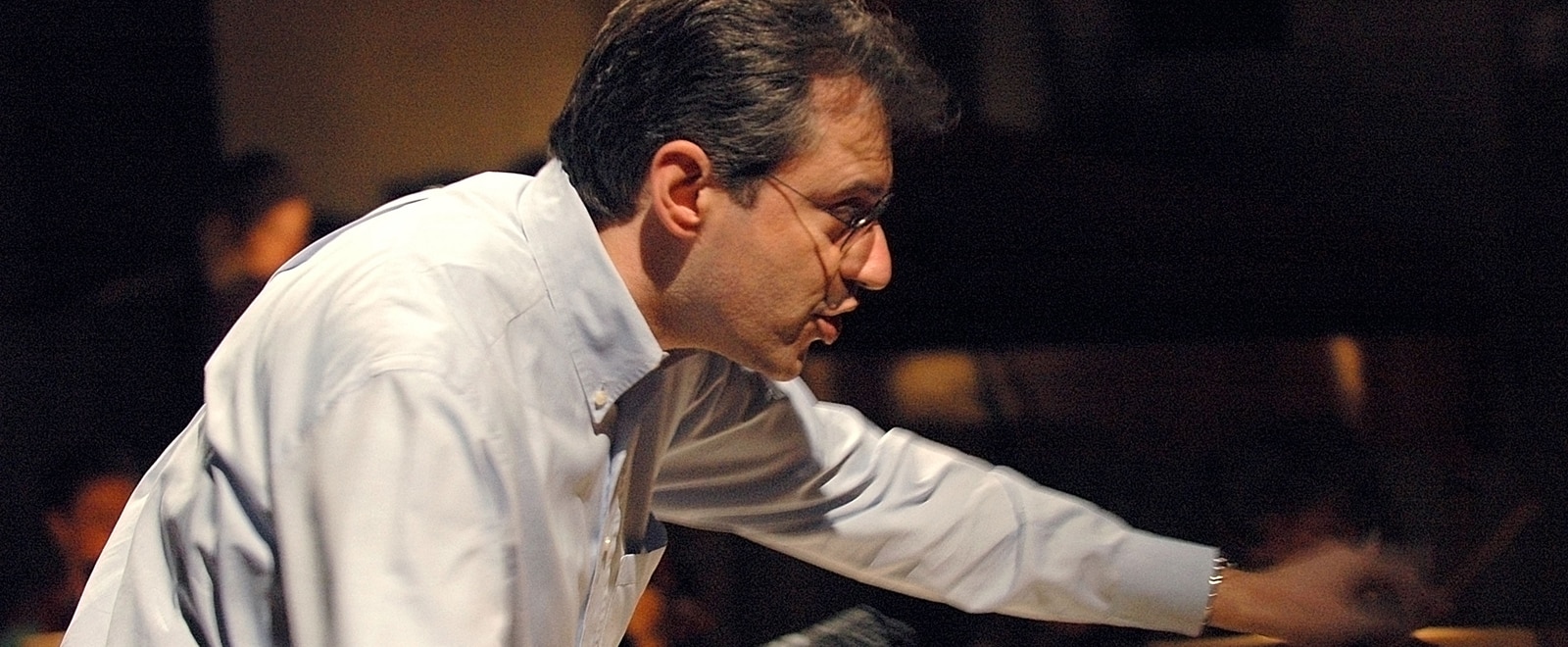
The New York Times“His (Henze’s) writing for a 23-piece instrumental ensemble, gorgeously colored and pulsating with ritualistic percussion, suits the milieu and the vocal complement; Corrado Rovaris, the company’s music director, elicited a fine account from his players.”
Associated Press“The company’s music director, Corrado Rovaris, conducted the orchestra with seeming mastery over the details of this difficult score.”
Corrado Rovaris is the Music Director of Opera Philadelphia and Music Director of the Artosphere Festival Orchestra, founded in 2011 by the Walton Arts Center. Celebrated for his vibrant style, especially in the bel canto repertoire, Rovaris’s warm presence at the podium has made him a favorite among opera’s greatest stars.
Rovaris opens Opera Philadelphia’s 2023/24 season with Simon Boccanegra and returns in spring 2024 to conduct a new production of Madame Butterfly. In November, he leads a revival of Alfredo il Grande at the 2023 Donizetti Opera Festival in Bergamo, marking the first staging of this work since its debut two hundred years ago in Naples. In January, he will conduct Le nozze di Figaro at Deutsche Oper Berlin. After Artosphere Festival in May, Rovaris will conduct eleven performances of La Traviata at Santa Fe Opera throughout the summer.
A proponent of new works, Rovaris played a key part in launching Opera Philadelphia’s annual Festival O, a two-week immersion featuring world premieres and other operatic happenings across the city, as well as the Aurora Series for Chamber Opera. Recent premieres include Glass Handel, an operatic art installation featuring the music of George Frideric Handel and Philip Glass co-produced by Opera Philadelphia and National Sawdust, Elizabeth Cree, a chamber opera by Pulitzer Prize-winning composer Kevin Puts based on Peter Ackroyd’s novel, and the acclaimed Written on Skin by George Benjamin.
Born in Bergamo, Italy, Corrado Rovaris graduated from the Conservatory of Milan with degrees in composition, organ, and harpsichord. From 1992 through 1996 he was the Assistant Chorus Master of the Teatro alla Scala. Soon after, he began appearing as a regular guest in many of the major Italian opera houses such as La Scala, Maggio Musicale Fiorentino, Teatro La Fenice, Teatro dell’Opera di Roma, and Teatro Comunale di Bologna. Internationally, he has led productions for the Opéra de Lyon, Opera Monte Carlo, Théâtre Municipal de Lausanne, Oper Köln, Oper Frankfurt, the Garsington Opera Festival, and the Japan Opera Foundation in Tokyo, among others. In North America, Rovaris has conducted the Canadian Opera Company, Santa Fe Opera, St. Louis Opera, and Glimmerglass Opera. In October 2008 he conducted the Tucker Gala with the Metropolitan Opera Orchestra, featuring among other guest soloists Susan Graham and Bryn Terfel. He has established a close connection with the Curtis Institute of Music and since 2009 has led several joint Curtis-Opera Philadelphia productions, including the 2018 production of Bernstein’s A Quiet Place.
Maestro Rovaris was awarded knighthood by the Order of Merit of the Italian Republic in 2015, and was honored in 2016 with the Franco Abbiati Prize.
OCTOBER 2023
